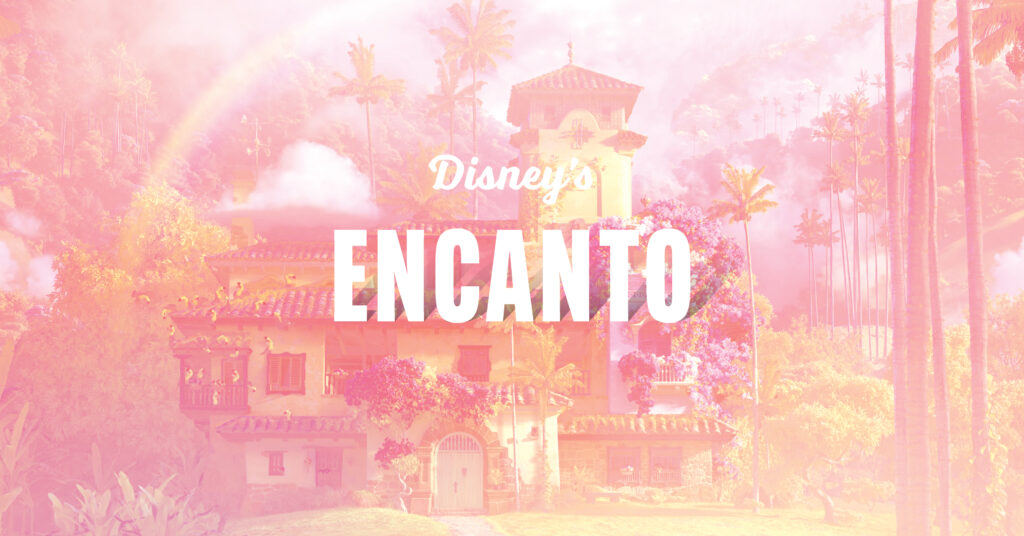If you’ve not yet seen Disney’s latest animated flick, do yourself a favor and go watch it now. Walt Disney Studios released Encanto, its 60th animated feature, at the end of 2021 with a heartwarming story that speaks to genuinely human experiences. Encanto deviates from the standard fairytale formula, but that’s exactly what makes this film truly magical.
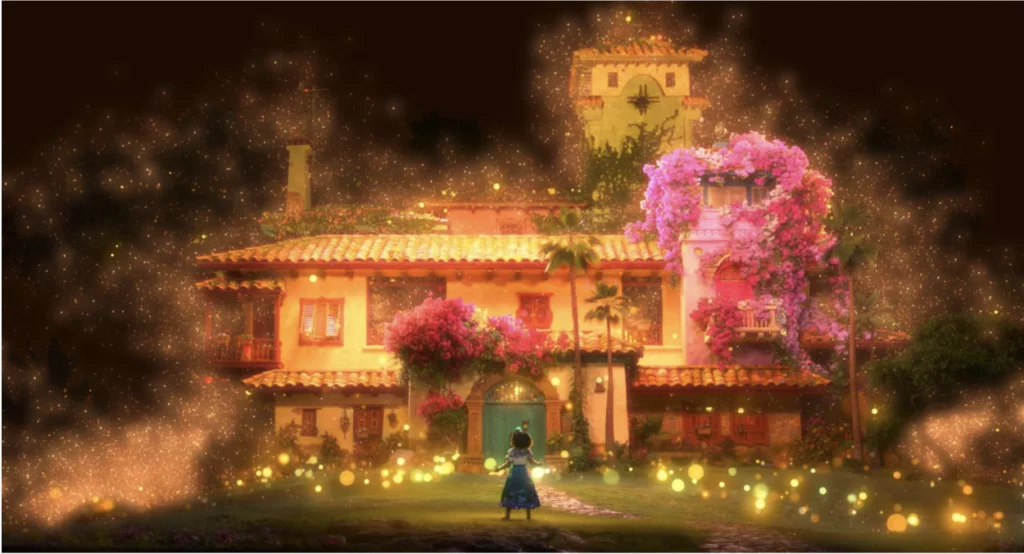
Though magic indeed plays a central role (the Spanish word “encanto” translates to charm, if that’s any indication), the film celebrates a kind of magical realism, with abilities that are directly tied to character and emotion. Meanwhile, the true wonder of this film arises from its portrayal of humanity.
“Walt Disney Animation Studios’ “Encanto” tells the tale of an extraordinary family, the Madrigals, who live hidden in the mountains of Colombia, in a magical house, in a vibrant town, in a wondrous, charmed place called an Encanto. The magic of the Encanto has blessed every child in the family with a unique gift from super strength to the power to heal—every child except one, Mirabel (voice of Stephanie Beatriz). But when she discovers that the magic surrounding the Encanto is in danger, Mirabel decides that she, the only ordinary Madrigal, might just be her exceptional family’s last hope.”
[Source: Disney]
Encanto’s story is both captivating and refreshing—set apart from the typical Disney movie narrative. If you’re looking for a villain, you won’t find one here. If it’s a quest you’re after, you should embark on one of your own. Encanto won’t feed you any of the usual narrative tropes because the film recognizes that cliché fairytales—stories of princesses and shining knights who fight monsters—do nothing to teach children about processing their own inner demons.
Self-Discovery and Social Relationships
I love Encanto because it offers an introspective depiction of its characters, exploring personal relationships, family dynamics, and social pressures. It feels so timely. Encanto reveals vulnerabilities and individual struggles that have become universally relatable these past few years as we continue to unearth and cope with growing anxieties and complexities of life in today’s world.
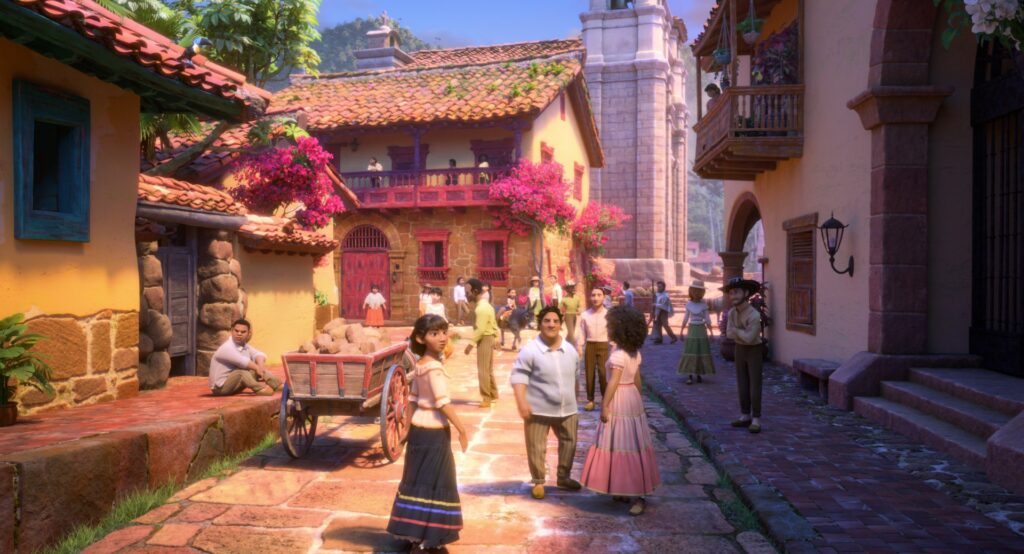
Although the environment and architecture are absolutely vibrant and stunning, the movie’s setting is more social than it is physical. Encanto focuses on the concepts of extended families and connected communities, where the strength of such networks lies in the power of the individual relationships. While I don’t intend to make a habit of reviewing films on this site, examining Encanto through the Hello Happy Design lens seems like a no brainer. And I’d be remiss to pass on an opportunity to talk about a piece of popular culture that is so boldly confronting complex social and familial topics while touching upon some of the many, many facets of mental health.
If you’re not a fan of spoilers, here’s your cue to pause reading, bookmark this post, and come back after watching Encanto! Be warned, there may be ***SPOILERS BEYOND THIS POINT***
The Depth of Character(s)
We rarely know one another as well as we think we do—this is true whether we’re strangers, neighbors, friends, or family. Despite having exceptional members, la Familia Madrigal is no exception to this rule.
The Disney movies of my childhood followed the typical princess plot, but I wish I had something more relatable, more vulnerable. Encanto is intimate and personal. While following Mirabel on her mission to save her family, Encanto proves that not all stories need a villain, that the inner battles we’re all fighting—struggles surrounding our identity, self-worth, purpose, and belonging—are antagonistic enough on their own.
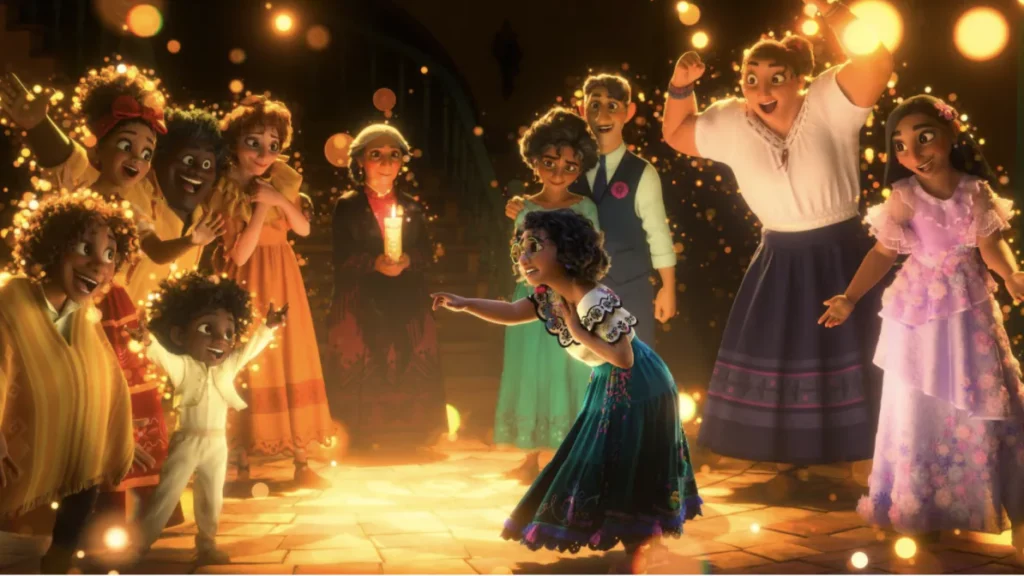
In Encanto, these struggles are steeped in heavy themes. Through Abuela’s story, we peer into the experiences of a refugee, and we see how her trauma is passed through generations. Within the town, we see that same trauma swell as community members grow fearful at the thought of losing the Madrigal magic, which they equate with the protection it has provided throughout the past 50 years since they were chased from their homes. With Isabela’s story, we reckon with the ways that social and familial expectations force us into lives we don’t necessarily want for ourselves. Confronted with Luisa’s struggles to manage the pressures, demands, and sense of responsibility to others, we see that even the strongest among us are vulnerable in ways we don’t immediately recognize. Félix and Pepa, meanwhile, demonstrate how we can be compassionate and supportive of our loved ones in their darkest moments, even when the thundery clouds of our emotions seem unrelenting.
Encanto has a dozen main characters, each with their own individual experiences, but all existing within the fabric of their family and community. (I go into detail about each character in a separate post.) This story reminds us that, while we are capable of great things, there are times we need to look outside ourselves to confront some of our truly unruly inner demons. In our moments of vulnerability, our community is our greatest strength.
We Are Stronger Together
This movie resonated with me so deeply. I admit that my own large family, alongside my personal experiences with depression, anxiety, boundary issues, and vulnerability, made me particularly sensitive to the film’s message. That said, I don’t believe anyone could deny the importance of such a message. Encanto’s focus on emotion and personal relationships is a universally relevant and powerful narrative.
There’s more within us than what others (sometimes even ourselves) recognize. Encanto’s story of the Madrigal family reminds us that we are each layered, multi-dimensional individuals who deserve to be seen, heard, understood, and accepted for who we are—not defined simply by what we do. It’s equally important for us to know this about ourselves as it is to recognize it in each other. Our gifts are our own to discover and determine, free from expectations. Our lives are not confined to a predestined fate; rather, every day we are gifted the opportunity to choose our own purpose.
Anyone complaining about the film’s array of characters or lack of villain is completely missing the point. The truth is, our individual experiences are wildly different from one another, yet one thing is universal: sometimes we are our own worst enemies, and we don’t need a personified villain to understand that.
Yet, we need not face these struggles alone. The members of the Madrigal family show us that by opening our doors, we can share the weight of a heavy load; invite one another to express ourselves authentically; find acceptance and understanding for who we are; embrace moments of emotional vulnerability; hold space for one other and allow each other to discover our own gifts and define our own identities; and offer our attention to ensure we all feel heard and seen.
Although it may be a little frightening, sometimes we need to truly shake our foundations, bust open our doors, and tear down the walls before we can lay the groundwork and rebuild … that’s okay, and it’s much less terrifying if we do it together.
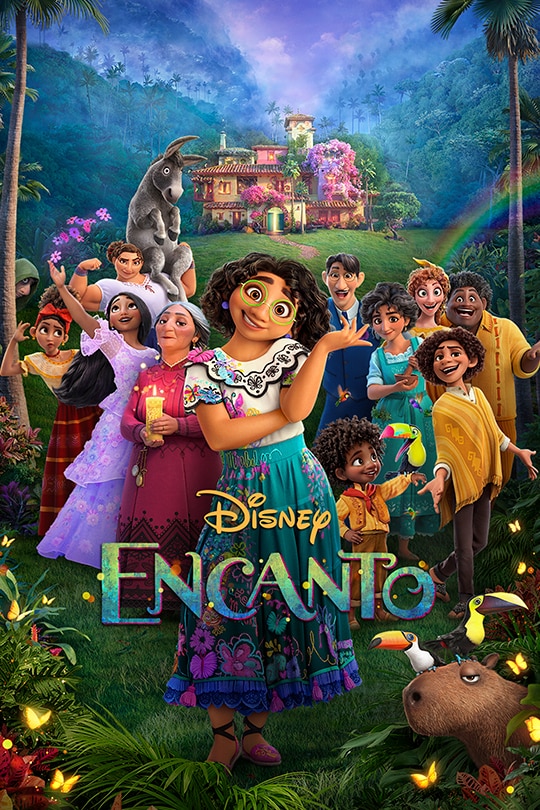
Read More About Encanto:
What ‘Encanto’ Taught Me About Vulnerability and Relationships | Psychology Today

